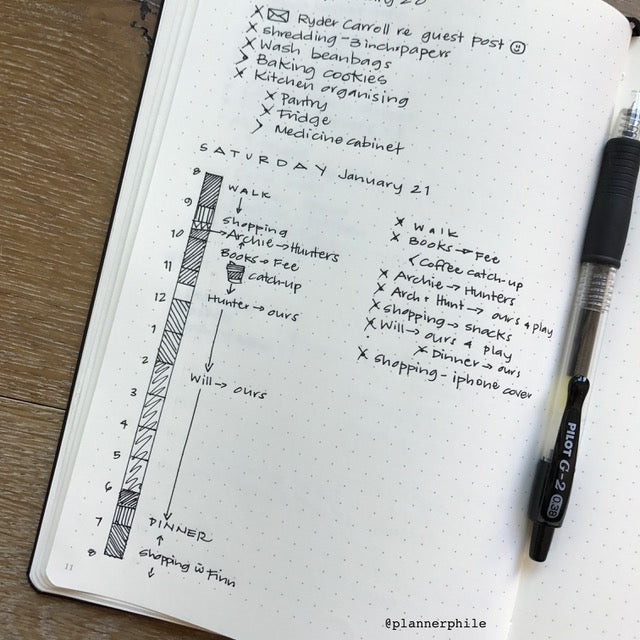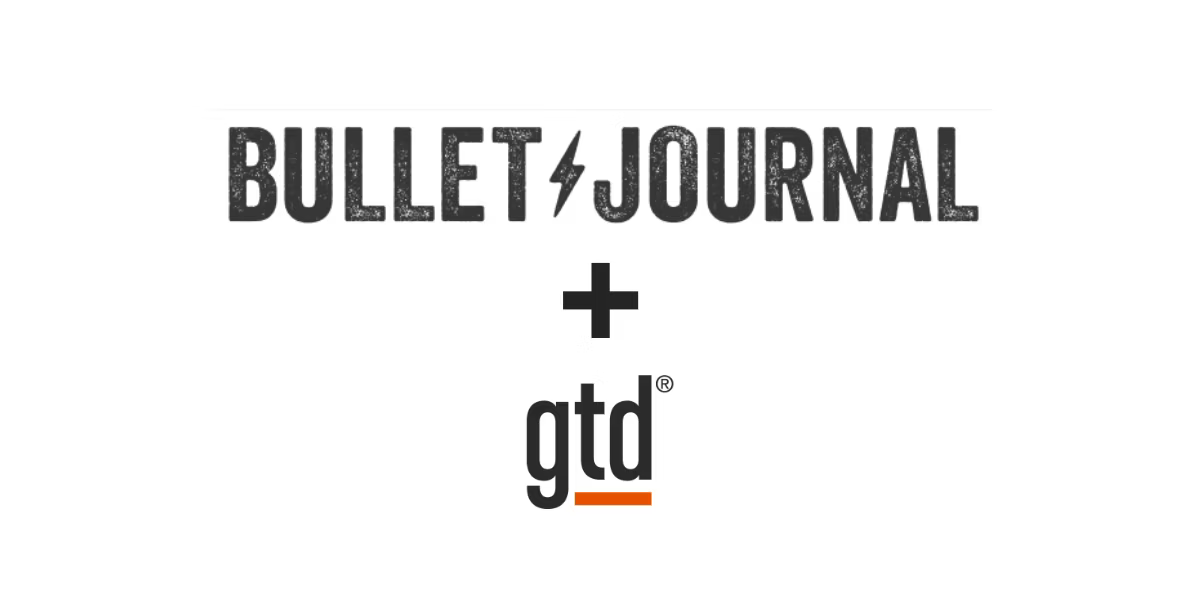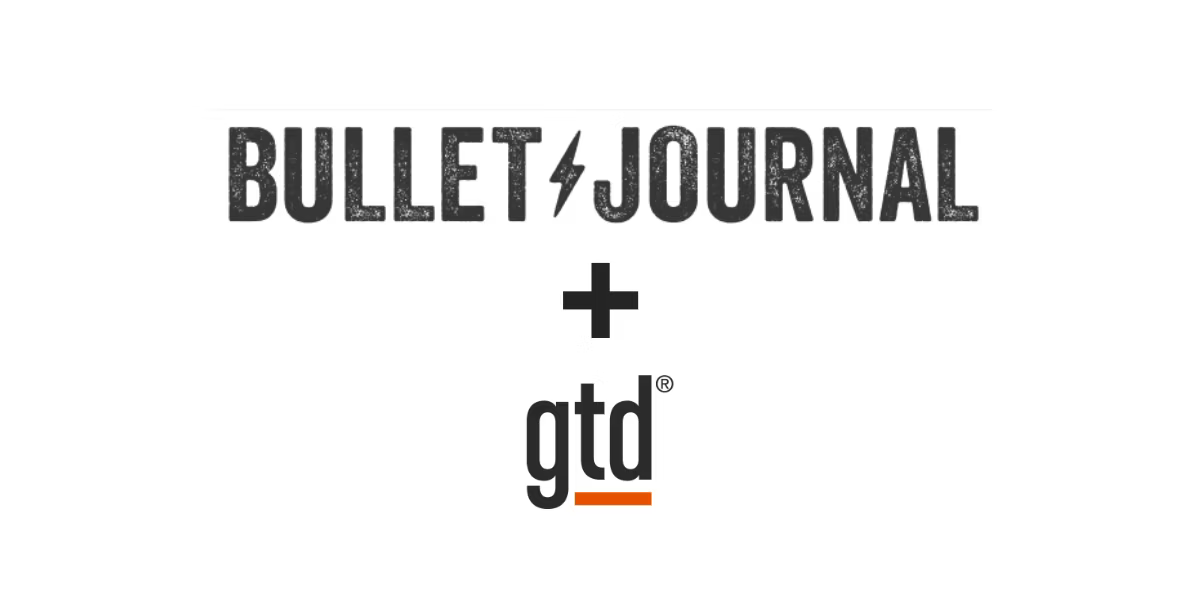Sustained attention, that is, thinking deeply about a problem without constantly stopping to text or check social media, seems a distant memory. Chronic distractibility, resembling attention deficit disorder (ADD) symptoms, is what ADD world expert Ned Hallowell calls attention deficit trait (ADT).

Easily confused with ADD, Hallowell says ADT is not a genetic disorder but is a direct result of modern life. We are capable of sustaining attention, reasoning and problem solving but it's easier to give in to the temptation offered by the ding of a notification and be eternally side-tracked by "busy" work without really doing anything.
I believe the pervasiveness of ADT is why the Bullet Journal® has become so popular, but what is it about Bullet Journaling that makes it so helpful for the attention challenged and why is it a great productivity tool for modern life? To answer these questions we need to check in with cognitive psychology.

Critically, attention is where cognitive function begins. If you can't pay attention to something in your environment then you can't process it and get meaning from it. Being able to disengage attention from one thing and redirect it towards another is essential but rapid shifting of attention back and forth between stimuli comes at a high cognitive cost.
"Multitasking" is a productivity myth because research has found the brain is unable to split attention across tasks to get things done faster. If you're talking on the phone, while checking your socials and typing an email and find yourself signing off "love you" to your boss on the phone, you have fallen into the multitasking trap. So if doing three things at once is not quicker then how can we be more productive? Productivity comes by paying attention to a single task and following it through to its completion; we do our best work when we are fully engaged. However, full engagement is easier said than done when we have a million to-dos buzzing around in our heads all clamouring for our attention so we need some way to clear our minds.

Writing down incomplete tasks gives the mind explicit permission to stop mentally rehearsing the to-do item and conserves the cognitive energy needed to focus our attention on completing our priority task. The research also suggests just writing down random thoughts anywhere isn't sufficient, this is why basic to-do lists don't improve productivity; the mind needs to be confident that the system is trustworthy. For our mind to deem a system trustworthy it must be simple, flexible, accessible, and reliable; the Bullet Journal is such a system.
Because we can "rapid log" our incomplete tasks, schedule appointments, make lists, take notes, draw diagrams, and index them all in a single notebook our minds are free to focus. Interestingly, research by Roy Baumeister and colleagues (2011) has found that incomplete tasks need not actually be completed to relieve the burden on the mind. That's right, we don't actually have to complete the task - just writing it down on a "Someday/maybe" list in our Bullet Journal can stop all those nagging "musts" and "shoulds" from interfering with our concentration.

Typing may be the best way to capture verbatim information but it is not the best way to remember something. This is because when typing, information enters your attentional system with little conscious thought or cognitive processing so you could actually be thinking about your date last night and still keep typing accurately, not remembering anything you've typed. It seems we need to "do" something cognitively with the information, transform it in some way in order to recall it better later on and handwriting does that.
Additionally, when handwriting, our mind is interacting with the information while recording the ideas and actively processing the concepts for better long-term understanding. How many times have you written something down only to truly see the problem for the first time? For me it's the only way out of writer's block, it's also the only way for me to self-reflect successfully.
What hasn't been investigated to date is whether typing to-do items into a digital calendar or note system is more difficult to recall than writing it down on paper. In my experience, once typed, anything in my "Reminders" app on my phone is never thought of again, and that's enough proof for me.

In a recent Evernote podcast Michael Hyatt, productivity expert, explained: "When we write, we get clear. When we get clear, that acts like a magnet that pulls us towards (our goal)". Many creative people resist structure because they feel it restricts their freedom and suffocates creative expression.
To the contrary, structure actually allows more room for creativity because once you have a plan, a schedule, and goals you can control the way you spend your time rather than it being frittered away with distracting thoughts, emotions, and behaviours that aren't part of the life you want to live. Bullet journaling combines planning, time-management, creative expression, reflection, and goal-setting; like a life coach in a notebook.
 So let's summarize
So let's summarize
Cognitive psychology suggests bullet journaling is effective for 3 reasons:
- Our minds recognise it as a trustworthy system because we're able to write anything down in a single notebook and use a simple, but effective page numbering and index system so we can find information again quickly.
- Handwriting allows for mental clarity and a deeper understanding of our thoughts, ideas, to-do's and goals.
- It assists us to easily create structure in our lives by allowing for planning, scheduling, goal-setting in a single notebook.
Cheerleading is central to the success of bullet journaling. Our tribe continues to support and encourage each other to do more, be more, and have more positives in our lives. Let's keep cheering each other on! Thanks Ryder Carroll for the opportunity to write this blog post and to contribute to this growing community.



 So let's summarize
So let's summarize


Kim Alvarez
May 15, 2017
Such a fascinating article, Jan. It make so much sense and it’s truly brilliantly written! I love that we’re getting into the science of why Bullet Journaling is effective :)